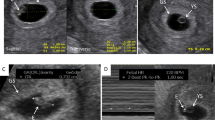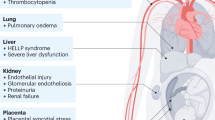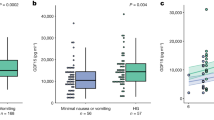Abstract
Hypertensive disorders of pregnancy (HDP) are common complications associated with maternal and neonatal morbidity and mortality worldwide. Insights gained from long-term cohort studies have revealed that women with a history of HDP are predisposed to recurrent HDP in subsequent pregnancies and face heightened risks for cardiovascular and metabolic diseases later in life. Pregnancy is a unique condition that overloads maternal cardiac and metabolic functions, and is recognized as a “maternal stress test” for future cardiovascular and metabolic diseases. Pregnancy and postpartum period provide a valuable opportunity for identifying women with underlying and unrecognized cardiovascular and metabolic risk factors. Establishing an effective postpartum healthcare program for women who have experienced HDP is crucial in reducing the future risk of health complications. Postpartum care consists of supportive care for both mothers and children, including not only the assessment of physical and psychological well-being but also long-term postpartum preventive health management. Interpregnancy care is a continuum from postpartum care and includes supportive care to prepare for future pregnancies. Various initiatives across nations have been initiated to establish follow-up programs for women with a history of HDP; however, sufficient evidence of the impact of such programs is not available. Substantial challenges persist in establishing an efficient postpartum follow-up program, including educational strategies, selection of effective lifestyle interventions, and collaboration among various healthcare providers. This review outlines the postpartum and interpregnancy care of women who have experienced HDP as well as the current status and challenges of related healthcare initiatives in Japan.

This is a preview of subscription content, access via your institution
Access options
Subscribe to this journal
Receive 12 print issues and online access
$259.00 per year
only $21.58 per issue
Buy this article
- Purchase on Springer Link
- Instant access to full article PDF
Prices may be subject to local taxes which are calculated during checkout




Similar content being viewed by others
References
Dimitriadis E, et al. Pre-eclampsia. Nat Rev Dis Prim. 2023;9:8.
Magee LA, et al. The 2021 International Society for the Study of Hypertension in Pregnancy classification, diagnosis & management recommendations for international practice. Pregnancy Hypertens. 2022;27:148–69.
Takagi K, et al. A Review of the Best Practice Guide 2021 for the Diagnosis and Management of Hypertensive Disorders of Pregnancy (HDP). Hypertens Res Pregnancy. 2022;10:57–73.
Chappell LC, et al. Pre-eclampsia. Lancet. 2021;398:341–54.
Say L, et al. Global causes of maternal death: a WHO systematic analysis. Lancet Glob Health. 2014;2:e323–e333.
Roberts CL, et al. Hypertensive disorders in pregnancy: a population-based study. Med J Aust. 2005;182:332–5.
Cameron NA, et al. Trends in the incidence of new‐onset hypertensive disorders of pregnancy among rural and urban areas in the United States, 2007 to 2019. J Am Heart Assoc. 2022;11:e023791.
Ford ND, et al. Hypertensive disorders in pregnancy and mortality at delivery hospitalization - United States, 2017-2019. MMWR Morb Mortal Wkly Rep. 2022;71:585–91.
Hauspurg A, Countouris ME, Catov JM. Hypertensive disorders of pregnancy and future maternal health: how can the evidence guide postpartum management? Curr Hypertens Rep. 2019;21:96.
Ditisheim A, et al. Prevalence of hypertensive phenotypes after Preeclampsia. Hypertension. 2018;71:103–9.
Giorgione V, et al. Incidence of postpartum hypertension within 2 years of a pregnancy complicated by pre-eclampsia: a systematic review and meta-analysis. Int J Obstet Gynaecol. 2021;128:495–503.
Poon LC, et al. Hypertensive disorders of pregnancy and long-term cardiovascular health: FIGO Best Practice Advice. Int J Gynecol Obstet. 2023;160:22–34.
Obstetric Care Consensus No. 8. Interpregnancy Care. Obstet Gynecol. 2019;133:e51–e72.
Khan SS, et al. Optimizing prepregnancy cardiovascular health to improve outcomes in pregnant and postpartum individuals and offspring: a scientific statement from the American Heart Association. Circulation. 2023;147:e76–e91.
Ogunwole SM, et al. Interconception care for primary care providers: consensus recommendations on preconception and postpartum management of reproductive-age patients with medical comorbidities. Mayo Clin Proc Innov Qual Outcomes. 2021;5:872–90.
Khosla K, et al. Long-term cardiovascular disease risk in women after hypertensive disorders of pregnancy: recent advances in hypertension. Hypertension. 2021;78:927–35.
Berks D, et al. Feasibility and effectiveness of a lifestyle intervention after complicated pregnancies to improve risk factors for future cardiometabolic disease. Pregnancy Hypertens. 2019;15:98–107.
WHO. Meeting to develop a global consensus on preconception care to reduce maternal and childhood mortality and morbidity. World Health Organization Headquarters, Geneva, 6–7 February 2012: meeting report.
ACOG Committee Opinion No. 736. Optimizing postpartum care. Obstet Gynecol. 2018;131:e140–e150.
İnce, S and NY Albar, Physiological Changes During the Postpartum Period: General Overview, in ENT Diseases: Diagnosis and Treatment during Pregnancy and Lactation, C Cingi, HE Özel, and N Bayar Muluk, Editors. 2022, Springer International Publishing: Cham. p. 29–38.
Ushida T, et al. New-onset postpartum hypertension in women without a history of hypertensive disorders of pregnancy: a multicenter study in Japan. Hypertens Res. 2023;46:2583–92.
Gestational Hypertension and Preeclampsia. ACOG Practice Bulletin, Number 222. Obstet Gynecol. 2020;135:e237–e260.
Webster K, et al. Diagnosis and management of hypertension in pregnancy: summary of updated NICE guidance. Bmj. 2019;366:l5119.
Tanaka H, et al. Are there maternal deaths related to hemorrhagic stroke due to hypertensive disorder of pregnancy that could be potentially preventable by tight hypertension management in antepartum? A retrospective study from the Maternal Death Exploratory Committee in Japan. J Clin Med. 2023;12:2908.
Norwitz ER. Preeclampsia: Intrapartum and postpartum management and long-term prognosis. Post TW, editor. UpToDate. Waltham, MA; UpToDate Inc. http://www.uptodate.com (Accessed on Feb 22, 2024).
Petersen EE, et al. Vital signs: pregnancy-related deaths, United States, 2011–2015, and strategies for prevention, 13 States, 2013-2017. MMWR Morb Mortal Wkly Rep. 2019;68:423–9.
Katsuragi S, et al. Analysis of preventability of hypertensive disorder in pregnancy-related maternal death using the nationwide registration system of maternal deaths in Japan. J Matern Fetal Neonatal Med. 2019;32:3420–6.
Sibai BM, et al. Maternal morbidity and mortality in 442 pregnancies with hemolysis, elevated liver enzymes, and low platelets (HELLP syndrome). Am J Obstet Gynecol. 1993;169:1000–6.
Japanese Society of Nephrology. Essential points from Evidence-based Clinical Practice Guidelines for Chronic Kidney Disease 2018. Clin Exp Nephrol. 2019;23:1–15.
Wu P, et al. Preeclampsia and future cardiovascular health. Circulation: Cardiovasc Qual Outcomes. 2017;10:e003497.
Dall’Asta A, et al. Cardiovascular events following pregnancy complicated by pre-eclampsia with emphasis on comparison between early- and late-onset forms: systematic review and meta-analysis. Ultrasound Obstet Gynecol. 2021;57:698–709.
Mito A, et al. Hypertensive disorders of pregnancy: a strong risk factor for subsequent hypertension 5 years after delivery. Hypertens Res. 2018;41:141–6.
Oishi M, et al. Hypertensive disorders of pregnancy increase the risk for chronic kidney disease: A population-based retrospective study. Clin Exp Hypertens. 2017;39:361–5.
Riise HKR, et al. Incident coronary heart disease after preeclampsia: role of reduced fetal growth, preterm delivery, and parity. J Am Heart Assoc. 2017;6:e004158.
Theilen LH, et al. Long-term mortality risk and life expectancy following recurrent hypertensive disease of pregnancy. Am J Obstet Gynecol. 2018;219:107.e1–107.e6.
Honigberg MC, et al. Heart failure in women with hypertensive disorders of pregnancy. Hypertension. 2020;76:1506–13.
Leon LJ, et al. Preeclampsia and cardiovascular disease in a large UK pregnancy cohort of linked electronic health records: A CALIBER study. Circulation. 2019;140:1050–60.
Adank MC, et al. Hypertensive disorders of pregnancy and cognitive impairment: a prospective cohort study. Neurology. 2021;96:e709–e718.
Schliep KC, et al. Association between hypertensive disorders of pregnancy and dementia: a systematic review and meta-analysis. Hypertension. 2023;80:257–67.
Dayan N, et al. Impact of preeclampsia on long-term cognitive function. Hypertension. 2018;72:1374–80.
Romundstad PR, et al. Hypertension in pregnancy and later cardiovascular risk: common antecedents? Circulation. 2010;122:579–84.
Umemura S, et al. The Japanese Society of Hypertension Guidelines for the Management of Hypertension (JSH 2019). Hypertens Res. 2019;42:1235–481.
Arnett DK, et al. 2019 ACC/AHA Guideline on the Primary Prevention of Cardiovascular Disease: A Report of the American College of Cardiology/American Heart Association Task Force on Clinical Practice Guidelines. Circulation. 2019;140:e596–e646.
Bartsch E, et al. Clinical risk factors for pre-eclampsia determined in early pregnancy: systematic review and meta-analysis of large cohort studies. BMJ. 2016;353:i1753.
Sanghavi M, Rutherford JD. Cardiovascular physiology of pregnancy. Circulation. 2014;130:1003–8.
Sattar N, Greer IA. Pregnancy complications and maternal cardiovascular risk: opportunities for intervention and screening? BMJ. 2002;325:157–60.
Pruthi D, et al. Exposure to experimental preeclampsia in mice enhances the vascular response to future injury. Hypertension. 2015;65:863–70.
Ushida T, et al. Persistence of risk factors associated with maternal cardiovascular disease following aberrant inflammation in rat pregnancy. Biol Reprod. 2017;97:143–52.
Ushida T, et al. Postpartum alterations following inflammation in rat pregnancy: a discovery proteomic analysis. Reproduction. 2021;161:513–22.
van Oostwaard MF, et al. Recurrence of hypertensive disorders of pregnancy: an individual patient data meta-analysis. Am J Obstet Gynecol. 2015;212:624.e1–17.
Lailler G, et al. Recurrence of hypertensive disorders of pregnancy: results from a nationwide prospective cohort study (CONCEPTION). BJOG: Int J Obstet Gynaecol. 2023;130:902–12.
Barton JR, Sibai BM. Prediction and prevention of recurrent preeclampsia. Obstet Gynecol. 2008;112:359–72.
Ebbing C, et al. Risk factors for recurrence of hypertensive disorders of pregnancy, a population-based cohort study. Acta Obstet Gynecol Scand. 2017;96:243–50.
Martínez-Hortelano JA, et al. Interpregnancy weight change and hypertension during pregnancy: a systematic review and meta-analysis. Obstet Gynecol. 2020;135:68–79.
Teulings NEWD, et al. Effect of interpregnancy weight change on perinatal outcomes: systematic review and meta-analysis. BMC Pregnancy Childbirth. 2019;19:386.
Tano S, et al. Annual body mass index gain and risk of hypertensive disorders of pregnancy in a subsequent pregnancy. Sci Rep. 2021;11:22519.
Doran GT. There’s a S.M.A.R.T. way to write managements’s goals and objectives. Manag Rev. 1981;70:35–36.
Rippe JM. Lifestyle strategies for risk factor reduction, prevention, and treatment of cardiovascular disease. Am J Lifestyle Med. 2019;13:204–12.
van Trier TJ, et al. Lifestyle management to prevent atherosclerotic cardiovascular disease: evidence and challenges. Neth Heart J. 2022;30:3–14.
Moore TJ, et al. DASH (Dietary Approaches to Stop Hypertension) diet is effective treatment for stage 1 isolated systolic hypertension. Hypertension. 2001;38:155–8.
Tschiderer L, et al. Breastfeeding is associated with a reduced maternal cardiovascular risk: systematic review and meta-analysis involving data from 8 studies and 1 192 700 Parous women. J Am Heart Assoc. 2022;11:e022746.
Burgess A, Eichelman E, Rhodes B. Lactation patterns in women with hypertensive disorders of pregnancy: an analysis of Illinois 2012–2015 Pregnancy Risk Assessment Monitoring System (PRAMS) Data. Matern Child Health J. 2021;25:666–75.
ACOG Committee Opinion No. 743. Low-dose aspirin use during pregnancy. Obstet Gynecol. 2018;132:e44–e52.
Roberge S, Bujold E, Nicolaides KH. Aspirin for the prevention of preterm and term preeclampsia: systematic review and metaanalysis. Am J Obstet Gynecol. 2018;218:287–293.e1.
Ren Y, et al. Application of low dose aspirin in pre-eclampsia. Front Med. 2023;10:1111371.
Rolnik DL, et al. Aspirin versus Placebo in pregnancies at high risk for preterm preeclampsia. N. Engl J Med. 2017;377:613–622.
Hermida RC, et al. Aspirin administered at bedtime, but not on awakening, has an effect on ambulatory blood pressure in hypertensive patients. J Am Coll Cardiol. 2005;46:975–83.
Stefanovic V. International Academy of Perinatal Medicine (IAPM) Guidelines for Screening, Prediction, Prevention and Management of Pre-eclampsia to Reduce Maternal Mortality in Developing Countries. J Perinat Med. 2023;51:164–9.
Mendoza M, et al. Aspirin discontinuation at 24 to 28 weeks’ gestation in pregnancies at high risk of preterm preeclampsia: a randomized clinical trial. Jama. 2023;329:542–50.
Brown MA, et al. Hypertensive disorders of pregnancy: ISSHP classification, diagnosis, and management recommendations for international practice. Hypertension. 2018;72:24–43.
Carver AR, et al. Maternal pravastatin prevents altered fetal brain development in a preeclamptic CD-1 mouse model. PLoS One. 2014;9:e100873.
Regitz-Zagrosek V, et al. 2018 ESC Guidelines for the management of cardiovascular diseases during pregnancy: The Task Force for the Management of Cardiovascular Diseases during Pregnancy of the European Society of Cardiology (ESC). Eur Heart J. 2018;39:3165–241.
Lui NA, Jeyaram G, Henry A. Postpartum interventions to reduce long-term cardiovascular disease risk in women after hypertensive disorders of pregnancy: a systematic review. Front Cardiovasc Med. 2019;6:160.
Muijsers HEC, et al. Home blood pressure monitoring detects unrevealed hypertension in women with a history of preeclampsia: Results of the BP-PRESELF study. Am. J Prev Cardiol. 2022;12:100429.
Kitt JA, et al. Short-term postpartum blood pressure self-management and long-term blood pressure control: a randomized controlled trial. Hypertension. 2021;78:469–79.
Ormesher L, et al. Postnatal Enalapril to Improve Cardiovascular Function Following Preterm Preeclampsia (PICk-UP):: A Randomized Double-Blind Placebo-Controlled Feasibility Trial. Hypertension. 2020;76:1828–37.
Wilson PW, et al. Prediction of coronary heart disease using risk factor categories. Circulation. 1998;97:1837–47.
Ridker PM, et al. Development and validation of improved algorithms for the assessment of global cardiovascular risk in women: the Reynolds Risk Score. Jama. 2007;297:611–9.
Hippisley-Cox J, et al. Derivation and validation of QRISK, a new cardiovascular disease risk score for the United Kingdom: prospective open cohort study. BMJ. 2007;335:136.
Selmer R, et al. NORRISK 2: A Norwegian risk model for acute cerebral stroke and myocardial infarction. Eur J Prev Cardiol. 2017;24:773–82.
Fraser A, et al. Ten‐year cardiovascular disease risk trajectories by obstetric history: a longitudinal study in the Norwegian HUNT Study. J Am Heart Assoc. 2022;11:e021733.
Zhang J, Troendle JF, Levine RJ. Risks of hypertensive disorders in the second pregnancy. Paediatr Perinat Epidemiol. 2001;15:226–31.
World Health, O., Adherence to long-term therapies : evidence for action. 2003, World Health Organization: Geneva.
Prochaska JO, DiClemente CC. Stages and processes of self-change of smoking: toward an integrative model of change. J Consult Clin Psychol. 1983;51:390–5.
Oishi M, et al. Current status of long-term follow-up system for women with a history of hypertensive disorders of pregnancy: the HDP-PPAP study (HDP-Postpartum in Aomori prefecture study). J Matern Fetal Neonatal Med. 2023;36:2183757.
Fraser A, Catov JM. Placental syndromes and long-term risk of hypertension. J Hum Hypertens. 2023;37:671–4.
Ananth CV, et al. Maternal cardiovascular and cerebrovascular health after placental abruption: a systematic review and meta-analysis (CHAP-SR). Am J Epidemiol. 2021;190:2718–29.
Green JB. Cardiovascular consequences of gestational diabetes. Circulation. 2021;143:988–90.
Kuwabara A, Su S, Krauss J. Utilizing digital health technologies for patient education in lifestyle medicine. Am J Lifestyle Med. 2020;14:137–42.
Atkinson J, et al. Patients’ understanding of long-term cardiovascular risks and associated health-seeking behaviours after pre-eclampsia. Open Heart. 2023;10:e002230.
Wang M, et al. Perceptions of patients and healthcare providers on patient education to improve oral anticoagulant management. J Eval Clin Pract. 2022;28:1027–36.
Timmers T, et al. Educating patients by providing timely information using smartphone and tablet apps: systematic review. J Med Internet Res. 2020;22:e17342.
Ndosi M, et al. Effects of needs-based patient education on self-efficacy and health outcomes in people with rheumatoid arthritis: a multicentre, single blind, randomised controlled trial. Ann Rheum Dis. 2016;75:1126–32.
Ford ND, et al. Clinician knowledge and practices related to a patient history of hypertensive disorders of pregnancy. Obstet Gynecol. 2022;139:898–906.
Acknowledgements
The authors thank Editage (www.editage.jp) for the English language editing.
Funding
This study was supported by grants awarded to TU by the Japan Society for the Promotion of Science (JSPS KAKENHI 22K16857) and Yamaguchi Endocrine Research Foundation.
Author information
Authors and Affiliations
Corresponding author
Ethics declarations
Conflict of interest
The authors declare no competing interests.
Additional information
Publisher’s note Springer Nature remains neutral with regard to jurisdictional claims in published maps and institutional affiliations.
Rights and permissions
Springer Nature or its licensor (e.g. a society or other partner) holds exclusive rights to this article under a publishing agreement with the author(s) or other rightsholder(s); author self-archiving of the accepted manuscript version of this article is solely governed by the terms of such publishing agreement and applicable law.
About this article
Cite this article
Ushida, T., Tano, S., Imai, K. et al. Postpartum and interpregnancy care of women with a history of hypertensive disorders of pregnancy. Hypertens Res (2024). https://doi.org/10.1038/s41440-024-01641-7
Received:
Revised:
Accepted:
Published:
DOI: https://doi.org/10.1038/s41440-024-01641-7



